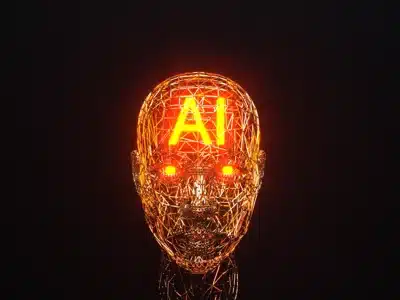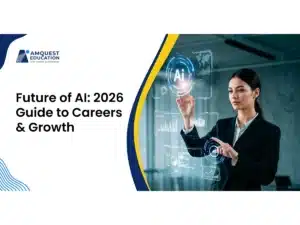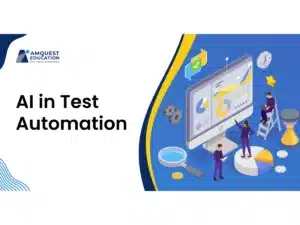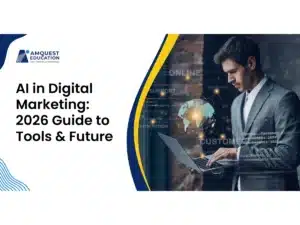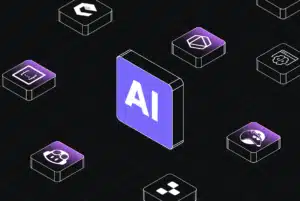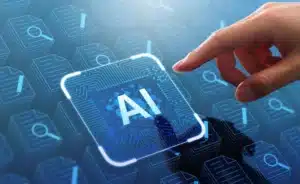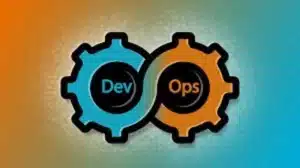Agentic AI in Software Engineering: Autonomous Systems Transforming Development, Deployment, and Innovation
The software engineering landscape is undergoing a fundamental transformation driven by the emergence of Agentic AI, autonomous, multi-agent systems capable of reasoning, planning, and executing complex tasks across codebases, workflows, and cloud environments with minimal human intervention. This evolution surpasses traditional AI copilots and automation tools, delivering unprecedented efficiencies in software development, deployment, and maintenance, while addressing pressing challenges such as skilled labor shortages and escalating system complexity.
This article explores the evolution of agentic and generative AI in software engineering, highlights leading frameworks and tools, discusses advanced deployment strategies, and provides actionable insights for professionals aiming to leverage this cutting-edge technology. A real-world case study and practical tips illustrate the profound impact and best practices essential for success.
For those seeking structured expertise, the Best Agentic AI Course with Placement Guarantee by Amquest Education offers a comprehensive pathway to mastery.
From Generative AI to Agentic AI: Evolution of Autonomous Software Engineering
The journey toward agentic AI builds upon the foundation established by generative AI and AI-assisted coding tools but introduces a critical shift from assistance to autonomy and orchestration.
- Assistive AI (Copilots): Early AI tools like GitHub Copilot enhanced developer productivity by suggesting code completions and boilerplate snippets. However, they required continuous human guidance and focused mainly on isolated code generation.
- Generative AI Expansion: Advances in large language models (LLMs) such as GPT-4 enabled more sophisticated capabilities, including automated code generation, documentation, and testing support. These models improved coding speed but remained reactive to developer prompts.
- Agentic AI Emergence: The latest evolution is characterized by autonomous multi-agent systems, where specialized agents, each responsible for roles such as software engineering, project management, testing, or analytics, collaborate under an orchestration agent that coordinates workflows, communicates across APIs, manages state, and adapts dynamically. This paradigm shift enables AI systems to plan, reason, and execute end-to-end software engineering tasks, moving beyond reactive generation to proactive, context-aware collaboration across complex projects.
Integrating Generative and Agentic AI: Generative models remain core components within agentic AI, powering natural language understanding, code synthesis, and reasoning. Agentic AI extends these capabilities by adding autonomy, memory, and orchestration layers that enable agents to independently manage tasks, interact with external systems, and learn from outcomes, thus creating a symbiotic relationship between generative and agentic AI that amplifies productivity and innovation.
For software engineers wanting to transition into this dynamic field, enrolling in a Gen AI Agentic AI Course provides essential knowledge on how these paradigms complement each other in practice.
Leading Frameworks and Tools Powering Agentic AI Workflows in 2025
| Framework/Tool | Key Features | Primary Use Cases |
|---|---|---|
| Microsoft AutoGen | Conversational multi-agent orchestration, secure code execution, cross-language support, built-in error handling | Enterprise code generation, workflow automation with compliance and audit focus |
| Anaconda AI Navigator | Privacy-first local model hosting, access to 200+ pre-trained models, customizable AI agents | Development in regulated or sensitive environments requiring data privacy and security |
| Qodo, Devin AI, Codex | Multi-repo context handling, autonomous coding, testing, deployment, CI/CD integration | Automating complex codebases, managing release pipelines, cross-service coordination |
| Manus AI, CrewAI | Research automation, reporting, team coordination, workflow orchestration | Beyond coding, organizational workflow automation and knowledge management |
These tools exemplify critical capabilities:
- LLM orchestration: Coordinating multiple specialized AI agents to collaborate effectively on complex software engineering tasks.
- Autonomous workflows: Enabling agents to plan and execute coding, testing, deployment, and monitoring without manual triggers.
- MLOps integration: Incorporating continuous integration and delivery pipelines adapted for AI models, ensuring reliability, reproducibility, and compliance.
- Security and privacy: Frameworks such as Anaconda AI Navigator emphasize on-device processing and strict access controls to protect sensitive data.
Understanding the architectural differences and domain-specific strengths of these tools is essential for selecting the right platform. For example, Microsoft AutoGen’s enterprise-grade compliance features make it suitable for regulated industries, while Qodo excels in handling multi-repository projects with complex dependencies.
Professionals aiming to excel in this evolving landscape can benefit immensely from the Agentic AI Certificate Programs in Mumbai, which provide hands-on experience with these cutting-edge tools.
Implementing Agentic AI at Scale: Advanced Strategies and Challenges
Successfully deploying agentic AI systems in production requires addressing unique technical and organizational challenges:
- Modular Agent Design: Clearly defining agent roles (coding, reviewing, testing, deployment) to parallelize efforts, minimize bottlenecks, and enable independent scaling.
- Robust Orchestration Layer: Employing orchestration agents that manage inter-agent communication protocols, handle errors gracefully, maintain global state, and support dynamic task reallocation.
- Incremental Rollout and Validation: Introducing agentic workflows gradually in low-risk environments to validate performance, reliability, and safety before full-scale adoption.
- Continuous Monitoring and Observability: Implementing real-time analytics dashboards tracking agent decisions, system health, error rates, and output quality. Observability tools must provide transparency into agent behavior to detect anomalies and support debugging.
- Human-in-the-Loop Feedback Loops: Integrating checkpoints for critical decisions to maintain human oversight, build trust, and mitigate risk of unintended consequences.
- Security and Risk Management: Incorporating secure coding practices, vulnerability scanning, access controls, and defenses against adversarial inputs or agent spoofing. Ensuring compliance with data privacy regulations through audit trails and policy enforcement.
- Ethical and Explainability Considerations: Ensuring AI agents’ decision-making processes are interpretable and align with organizational ethical standards to prevent bias and unintended harm.
Addressing these challenges requires cross-disciplinary expertise and investment in tooling, training, and organizational culture. The Best Agentic AI Course with Placement Guarantee offers targeted modules on these deployment complexities, preparing practitioners for real-world scenarios.
Foundational Software Engineering Best Practices for Agentic AI
Agentic AI amplifies the importance of core software engineering disciplines to ensure system reliability, security, and governance:
- Version Control and Code Reviews: AI-generated code must adhere to team standards and undergo rigorous peer review, supported by AI-assisted linting and static analysis tools.
- Comprehensive Testing Automation: Integrating unit, integration, and regression testing into agentic pipelines enables early defect detection and continuous quality assurance.
- Documentation and Traceability: Maintaining detailed logs and documentation of agent decisions, code changes, and workflow executions supports debugging, auditing, and compliance.
- Security by Design: Embedding security considerations throughout AI workflows, including threat modeling, secure coding guidelines, and automated vulnerability assessments.
- Compliance Adherence: Ensuring AI systems enforce policy constraints, data privacy rules, and regulatory requirements, particularly in sensitive industries.
These best practices ensure agentic AI augments software quality and governance rather than compromising them. For software engineers transitioning into agentic AI roles, the Gen AI Agentic AI Course provides practical exercises on embedding these principles within AI-driven workflows.
Cross-Functional Collaboration: The Cornerstone of Agentic AI Success
The complexity of agentic AI systems necessitates collaboration among diverse roles:
- Data Scientists and AI Researchers: Develop, fine-tune, and validate AI models powering agents, ensuring robustness and fairness.
- Software Engineers: Integrate AI agents within existing codebases, maintain engineering standards, and implement deployment pipelines.
- DevOps and MLOps Teams: Manage infrastructure, deployment, scaling, monitoring, and incident response for AI-driven systems.
- Business Stakeholders: Define project requirements, key performance indicators (KPIs), and ensure alignment with strategic goals.
Fostering transparent communication channels and shared tooling across these groups accelerates iteration cycles and improves outcomes. Institutions offering the Agentic AI Certificate Programs in Mumbai emphasize cross-functional team training to reflect real-world collaborative environments.
Measuring Success: Key Metrics and Monitoring Practices
Evaluating agentic AI deployments requires tracking multiple performance dimensions:
- Task Completion Rates: Percentage of tasks autonomously completed without human intervention, indicating system maturity.
- Error Rates and Bug Counts: Frequency and severity of defects introduced by AI-generated code, critical for quality assurance.
- Cycle Time Reduction: Time saved across development, testing, and deployment phases, reflecting productivity gains.
- User and Developer Satisfaction: Feedback from end-users and engineering teams interacting with AI agents, essential for adoption and trust.
- Resource Utilization: Efficiency improvements in compute, manpower, and operational costs.
Advanced monitoring systems employ dashboards with real-time alerts for performance degradation, security incidents, or policy violations, enabling proactive issue resolution and continuous improvement. The Best Agentic AI Course with Placement Guarantee includes training on establishing effective metrics and monitoring frameworks tailored to agentic AI systems.
Case Study: Formula 1’s Pioneering Use of Agentic AI
Formula 1 (F1) exemplifies how agentic AI can transform complex, real-time software engineering operations. Leveraging AWS-powered multi-agent workflows, F1 reduced issue resolution time by 86 percent. In the high-stakes environment of racing, rapid software updates and operational decisions are critical.
F1’s agentic AI system deploys specialized agents to:
- Analyze telemetry data streams
- Diagnose software anomalies autonomously
- Propose and deploy fixes with minimal human input
An orchestration agent manages coordination, ensuring smooth workflows and error handling.
Outcomes:
- Significant reduction in downtime and manual errors
- Enhanced speed and accuracy in decision-making
- Freed human engineers to focus on strategic innovations and race strategy
F1’s success demonstrates the tangible business impact possible with well-implemented agentic AI systems. For professionals inspired by such success stories, enrolling in a Gen AI Agentic AI Course offers practical insights into architecting similar autonomous systems.
Actionable Tips for Practitioners
- Start Small: Pilot agentic AI in well-defined, low-risk components to validate value and build confidence.
- Invest in Orchestration: Prioritize building or adopting a robust orchestration layer to manage agent interactions and error recovery.
- Embed Security Early: Integrate security checks and compliance controls at the start of AI workflow design.
- Foster Cross-Functional Teams: Combine AI expertise with software engineering and operations for holistic solutions.
- Measure and Iterate: Use analytics to guide continuous improvements and build trust in agentic AI capabilities.
- Upskill Your Team: Equip engineers with skills in agentic AI frameworks, deployment strategies, and best practices through structured learning.
For those seeking comprehensive, hands-on education, the Best Agentic AI Course with Placement Guarantee by Amquest Education offers an industry-leading curriculum. It covers the latest frameworks, deployment methodologies, real-world case studies, and expert instruction, uniquely positioning learners to architect and deploy scalable AI systems with confidence.
FAQs
What distinguishes Agentic AI from generative AI?
Agentic AI comprises autonomous, specialized agents capable of planning, reasoning, and executing complex tasks independently across software workflows. Generative AI primarily focuses on producing code or content from prompts but lacks autonomous task orchestration and multi-agent collaboration.
How does Agentic AI boost software engineering productivity?
By automating routine coding, testing, deployment, and coordination tasks, agentic AI reduces manual effort, accelerates delivery cycles, and minimizes human error, enabling engineers to focus on high-impact innovation.
Which tools are leading in Agentic AI development?
Microsoft AutoGen, Anaconda AI Navigator, Qodo, Devin AI, and Codex are among the top platforms for enterprise-grade multi-agent orchestration, secure AI agent development, and autonomous software engineering workflows.
How can security and compliance be ensured when deploying Agentic AI?
Through secure coding practices, automated vulnerability scanning, strict access controls, continuous monitoring, and frameworks with built-in compliance features like AutoGen, organizations can maintain governance and mitigate risks.
What skills are essential for implementing Agentic AI in software engineering?
A combination of AI/ML knowledge, software engineering discipline, DevOps and MLOps expertise, and cross-functional collaboration skills is critical. Structured training programs such as Amquest Education’s Best Agentic AI Course with Placement Guarantee provide a comprehensive pathway to mastery.
The rise of agentic AI marks a pivotal evolution in software engineering, empowering teams to build more intelligent, autonomous, and scalable systems. By embracing the latest frameworks, best practices, and fostering collaborative cultures, organizations can unlock significant productivity gains and innovation.
For software engineers and technology leaders eager to lead in this domain, investing in specialized education such as the Agentic AI Certificate Programs in Mumbai and the Gen AI Agentic AI Course by Amquest Education is a strategic step toward future-proofing careers and delivering impactful solutions.
